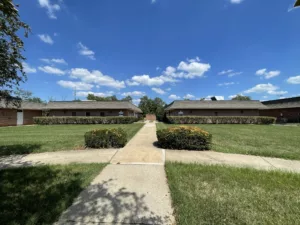Simply defined, the Internet of Things describes a network or connection of physical objects, or “things”, embedded with sensors, software, and other technologies for the purpose of connecting and exchanging data with other devices and systems over the Internet. From your Fitbit to household appliances, from healthcare to smart cities, the IoT is having a significant impact on the future. And while it offers huge benefits, some aspects may be concerning.
In commercial real estate, the Internet of Things can be used for a variety of purposes, including to control climate and lighting by using sensors that measure activity in specific areas of a building and recognizing opportunities for efficiency. Data is collected to evaluate how spaces are used (or what space is not used at all). This information can be evaluated by tenants and owners to customize layouts for optimal space utilization. This efficiency increase results in the “right sizing” of space as well as potential savings for everyone.
There are many other functions where this data can be analyzed and translated into savings beyond lighting or climate control. IoT could be used for security, supply chain management, vendor relationships, fleet management, air quality, maintenance issues, and even property management.
In multifamily property management, an owner/manager would be notified of a water line break in the basement immediately, when it could have gone otherwise unnoticed for hours if not days. Using sensors on the water lines, connected to a WiFi monitor, a manager/owner would be notified of an excessive amount of water flow, allowing a quick response to a potentially costly event. The same would apple to an interruption in utility services. By telling the owner that the power is down in a building in real time, IoT provides an opportunity for quick decision-making that remedies the situation and helps to prevent potential damage.
The Internet of Things can assist in bookkeeping as well, by notifying tenants of rent increases or helping to manage utility bills. It can also provide your tenants with useful data that saves them money, and therefore keeps them happy in their space.
Many uses are already in place that we probably don’t even notice, like the electronic keys in a hotel… Yes, they can monitor a guest’s location within the hotel.
We are likely all familiar with “wearables” by this point, but the applications in the medical field are surprising. Medical staff can remotely monitor patients, know their location, track their sleeping habits, and nano-sensors can even quantitatively predict the risk of illnesses such as cancer.
This Internet of Things creates a lot of data, both personal and business, floating around. Who can see it? How is it protected? These are great questions that will be addressed in the follow up of the article, coming soon.






